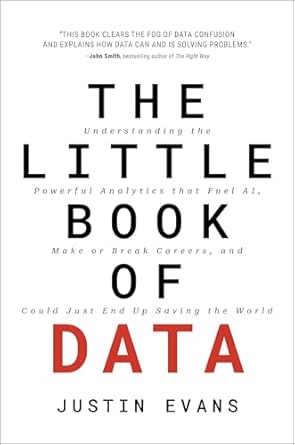What do you think?
Rate this book


304 pages, Hardcover
Published June 3, 2025
Data: dry and boring, right? Not in the hands of Justin Evans, a data expert himself, who set out to show that data is not only the lifeblood of today’s world; it is also the source of moving stories of other data experts who have achieved remarkable things – like the epidemiologist whose inspired use of data in the early days of Covid helped save hundreds of thousands of lives in New York city alone.
Hosted by Simplecast, an AdsWizz company. See pcm.adswizz.com for information about our collection and use of personal data for advertising.